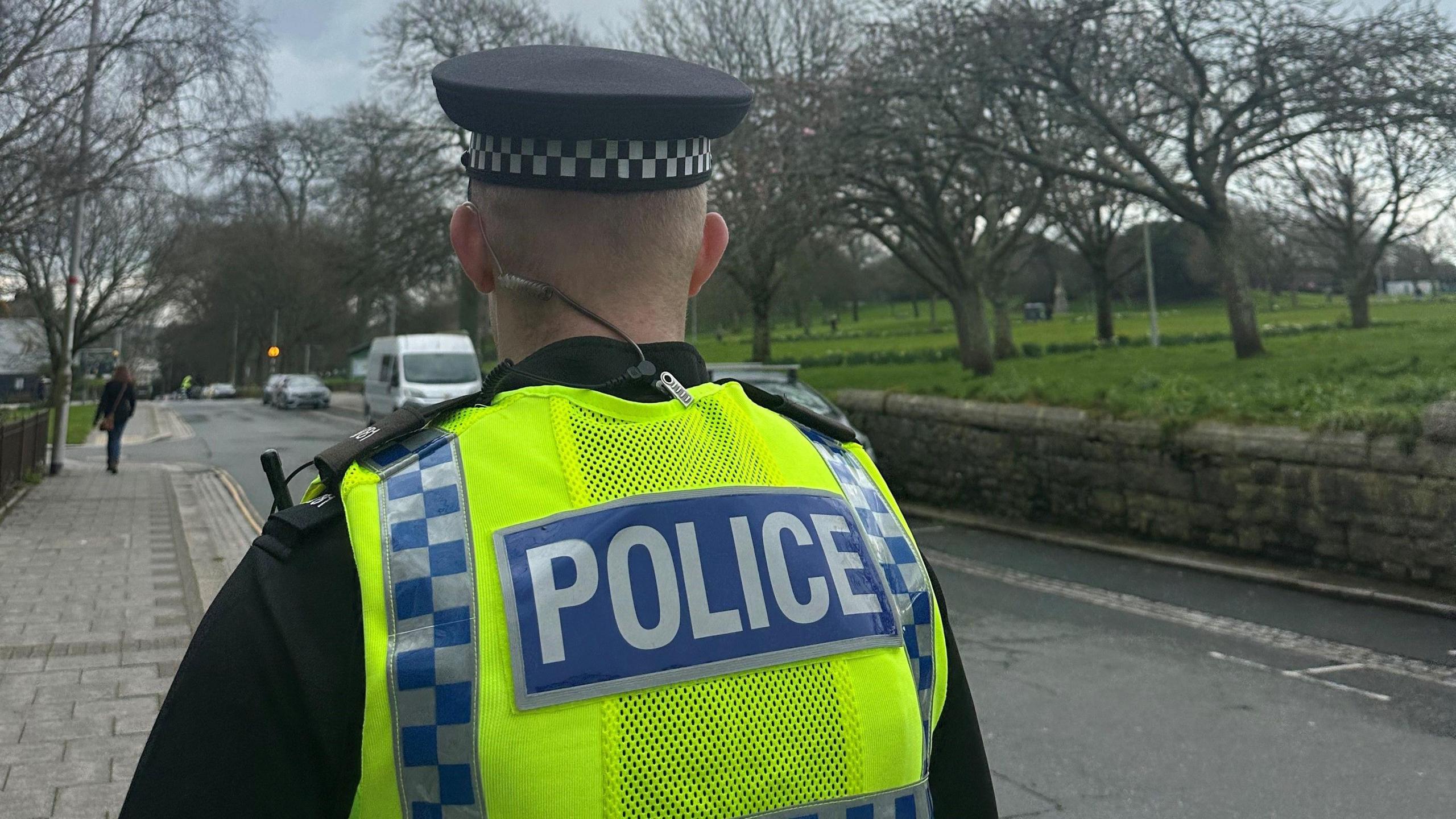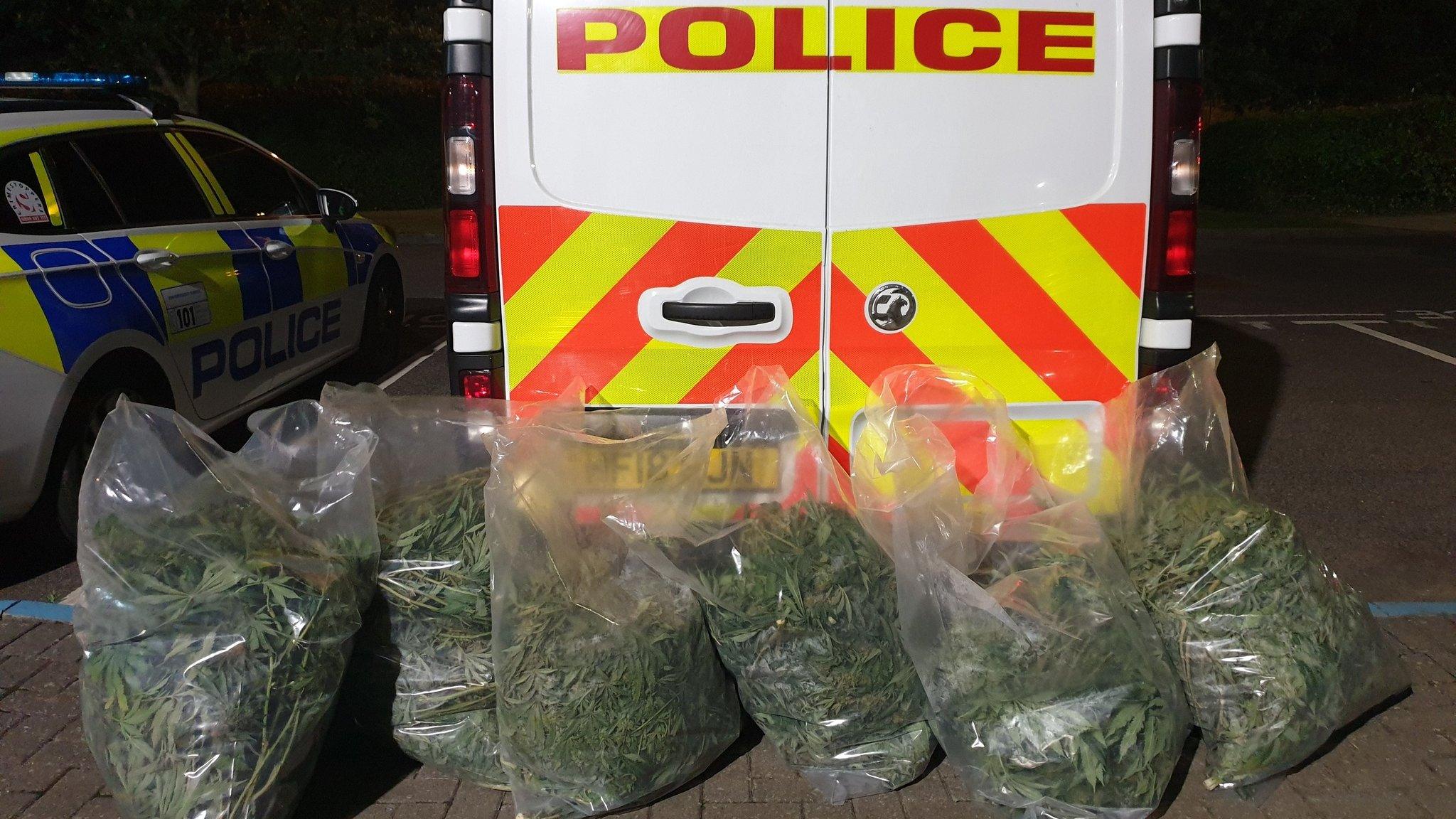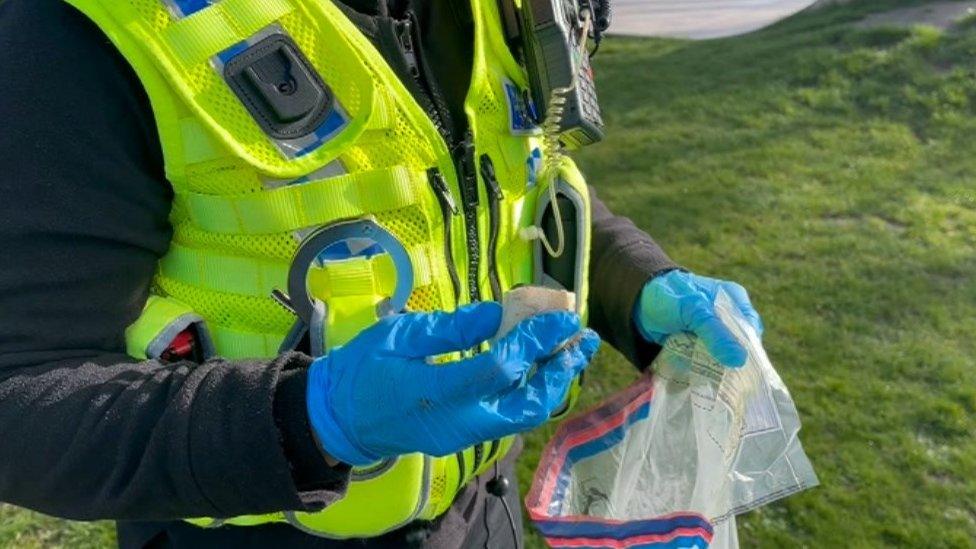Public help wanted to protect victims of cuckooing

Police said they said he wanted "the eyes and ears of the public on the streets"
- Published
Police officers in Plymouth are appealing to local people to help identify possible victims of cuckooing.
The practice involves criminals taking over a household and using the property for exploitation purposes.
Devon and Cornwall Police said it wanted information to help introduce safeguarding measures and "put offenders behind bars".
Insp Dom Nicholls, of Devon and Cornwall Police, said an effective way to tackle drug crime was to have "the eyes and ears of the public on the streets".
Coercive tactics
Cuckooing, which takes its name from cuckoos, which take over the nests of other birds, is most commonly employed by drug dealers who use a home to store drugs.
Police said offenders use coercive tactics to manipulate victims into a position of trust.
The force said: "The drug dealer will then offer the victim something of interest to them. This could be a relationship, friendship, drugs, alcohol, money or clothing.
"In exchange, they may ask to ‘borrow’ a room to store something, or meet other ‘friends’ at the property."
'Identify and support'
The force added criminals often targeted the most vulnerable in society, including individuals who "experience mental health difficulties or substance misuse, are socially isolated, or who have a learning or physical disability, or illness".
Police advised the public to look out for warning signs of cuckooing, including an increase of visitors to a property at unsociable hours, suspicious vehicles outside an address, and unusual smells from a property.
Insp Nicholls said: “Whilst numbers remain low, unfortunately, we know that cuckooing does happens across our communities.
"Our officers are working closely with partner agencies, including the local council, to identify and support victims of cuckooing, which is proving successful.
"However, we still need the support of our local communities to help us identify other possible victims of cuckooing which we may not know about.”
Follow BBC Devon on X (formerly Twitter), external, Facebook, external and Instagram, external. Send your story ideas to spotlight@bbc.co.uk, external.
- Published25 September 2023

- Published15 March 2024
